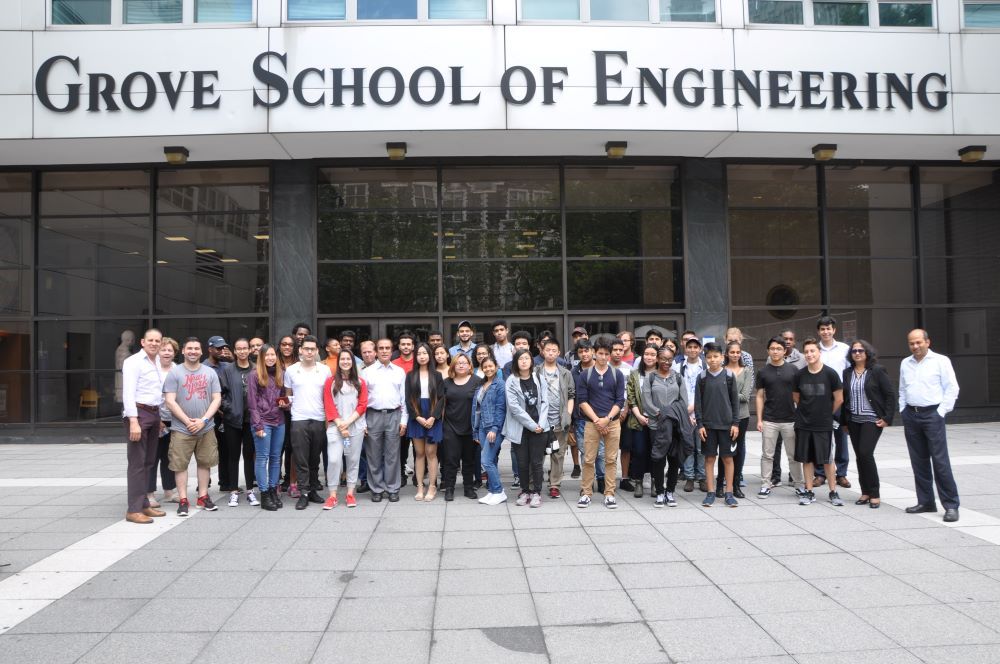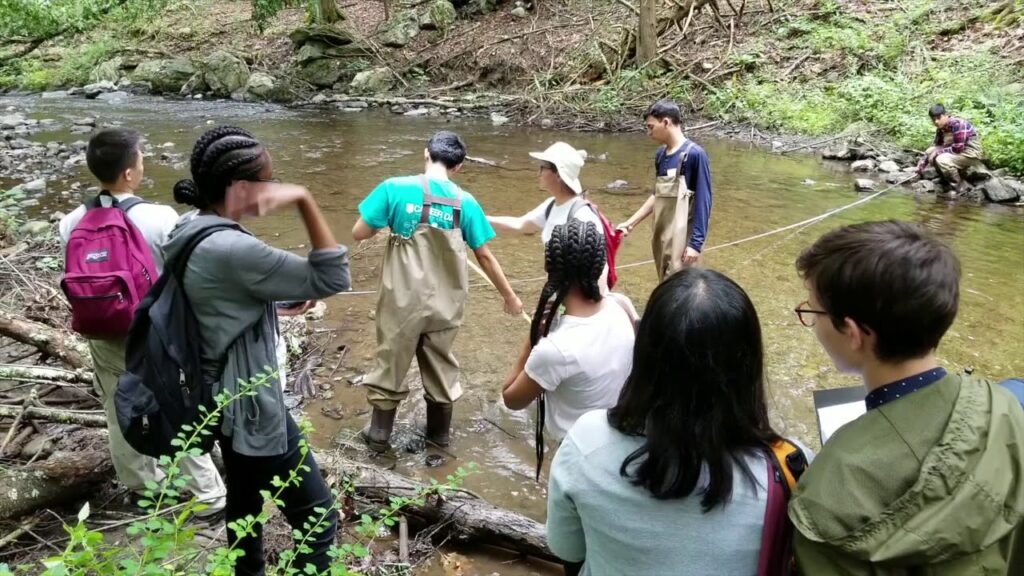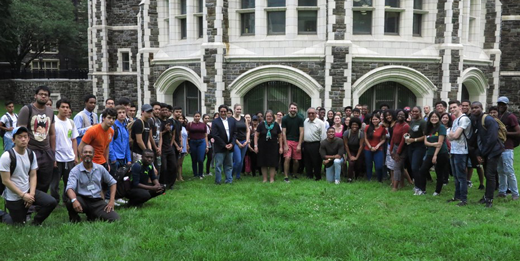The Coastal Urban Environmental Research Group (CUERG)
Director: Jorge E. Gonzalez
The Coastal Urban Environmental Research Group (CUERG) of The City College of New York conducts climate research studies on complex coastal urban areas including but not limited to; the states of California, New York, the islands of Puerto Rico and Dominican Republic. The research includes observational and modeling studies of coastal physical phenomenon and their practical impacts on climate modification. The research group uses the Regional Atmospheric Modeling System (RAMS) developed by scientists from Colorado State University and the Weather Research and Forecasting model (WRF) developed by NCAR as main modeling tools. The group has research collaborators from The City College of New York, Santa Clara University, San Jose State University, NASA Ames, NASA Marshall Space Center, and Laurence Berkeley National Laboratory (LBNL). It also has a good number of Ph.Ds, masters, and undergraduate students from all academic institutions.

HIRES (High School Initiative in Remote Sensing of The Earth Systems Engineering And Sciences)
Director: Dr. Shakila Merchant
HIRES is a program within the CUNY CREST Institute which offers high school students an opportunity to work closely with scientists in the field and in labs, collect and analyze data, present at conferences, and more! It’s aim is to provide NYC high school student research experience especially in STEM. We leverage our connections and resources to increase student recruitment, share experiences and expertise, and identify specific opportunities, challenges, and strategies for effectively supporting students in developing science research skills and competencies. HIRES is part of the NYC Science Research Mentoring Consortium funded by the Pinkerton Foundation. HIRES focuses on STEM education which is an increasingly important part of the today’s workforce and economy. HIRES provides and encourages high-quality science and technology activities and initiatives in after-school programs.

REU (Research Experience for Undergraduates)
Director: Reginald Blake
This unique NSF REU program provides opportunities for undergraduate students of the City University of New York (CUNY) to become active participants in Remote Sensing research at the CUNY CREST Institute. These opportunities combine the advantages of the stimulating, multi-disciplinary, environment of a NOAA Center of Excellence in Remote Sensing with the guidance provided by mentor-oriented researchers who are committed to the education and the encouragement of women, underrepresented minorities, and students with disabilities. As a newly designated NSF Model Replication Institution (MRI), the proposed City Tech REU site and its CUNY CREST Institute partnerships will serve as an effective catalyst, enabling us to establish a formal program for students interested in Remote Sensing at NOAA and to develop more NOAA-funded opportunities, in addition to those opportunities funded by NSF awards.

CiPASS (City College Initiative to Promote Academic Success in Stem)
Director: Jorge E. Gonzalez
The CIPASS Program will increase the number of underrepresented minorities studying STEM at The City College of New York, assist them during their studies, and provide opportunities for them to gain the experience that will make them valuable employees. The five key elements of CiPASS are: (1) A summer STEM Bridge Program to improve the readiness and academic self-confidence of entering students; (2) Online instruction to support math skills development; (3) Real-time performance assessment with individualized academic intervention; (4) Experiential and entrepreneurial learning; and (5) Recruitment and support for transfer students in partnership with CUNY Community Colleges.

Weather Camp
Director: Brian Vant-Hull
The Weather-camp at the City University of New York is a two week program for high school students from the New York City metropolitan area, and has been offered free of charge to 6-12 students selected via an application process since 2009. It generally begins in the last week of July or first week of August, depending on staff scheduling. The first week is a day camp on the campus of the City College of New York. Concepts of meteorology are demonstrated by hands-on activities whenever possible and applied to weather observations both locally and around the country. Experts on such topics as severe storms and climate will speak and answer questions. We also visit a local broadcast meteorologist and see how a live forecast is put together. During the second week, the schedule involves combination of forecasting in the computer lab at City College and a visit to the local National Weather Service (NWS) office located on the campus of Brookhaven National Laboratories. The camp location will be within walking distance of a beach on the north shore of Long Island, and each morning will go to the National Weather Service office (NWS) for in depth study of weather phenomena, with the afternoons devoted to field observations of the sea breeze effect, the urban heat island, the surface environment and clouds.

